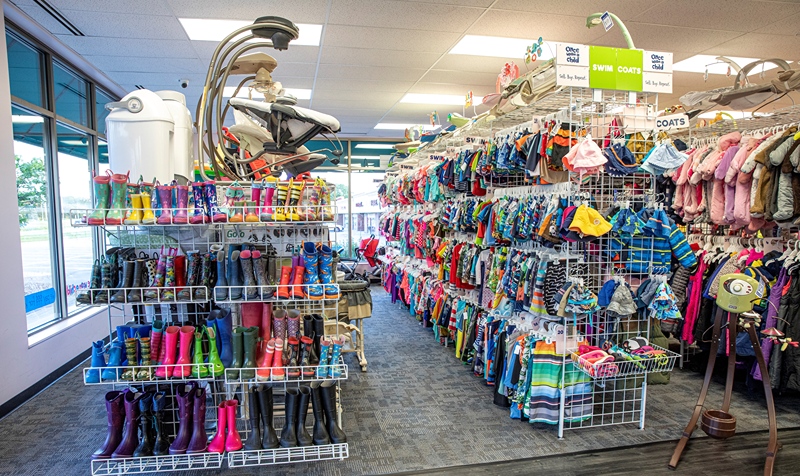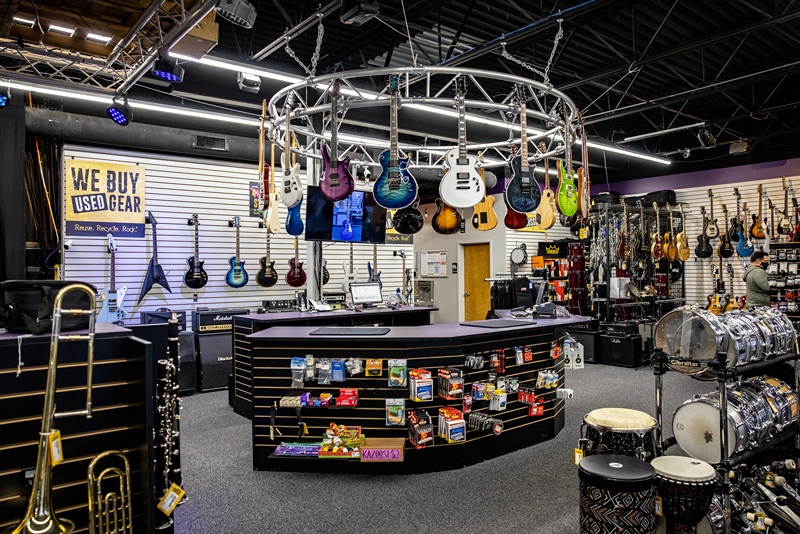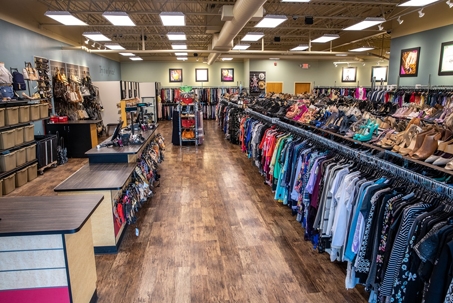Recessions are particularly difficult times for small businesses. During the Great Recession, more than 170,000 small businesses closed down between 2007 and 2009.
With the economic downturn caused by the COVID-19 pandemic, job security has become a top issue for millions of Americans. Uncertainty has brought job losses, business closures and loss of profits. However, certain businesses fare better than others during an economic downturn.

Recession-resilient businesses, like resale franchises, provide both business owners and consumers with a sense of security about the future.
What Makes a Recession-Resilient Business?
Businesses that do well during a recession are able to weather market changes and economic instability.
These companies provide for a consumer’s needs, rather than their wants, creating a continuous high demand for products and services, despite economic volatility.

At the same time, businesses that are able to offer their products and services at a better value will often see more traffic, as people look to stretch their budgets.
Small Businesses that Excel in Recessions
When looking to start a business that can withstand economic fluctuations, consider these industries that have been shown to be recession-resilient.
Resale Franchises: While traditional retail brands are susceptible to the rise and fall of the economy, resale retailers have the benefit of offering quality goods at a better value, bringing customers into their locations or onto their ecommerce sites. Resale retailers buy consumers’ gently used items. This model, as demonstrated by Winmark brands like Once Upon A Child®, Plato’s Closet® and Style Encore®, brings in new customers looking to stretch their dollar, as well as those looking for a quick way to receive cash on the spot for selling their gently used goods. The added benefit of opening a franchise brand during a recession gives business owners an extra level of support during difficult financial times.

- Cost-Effective Luxury Items: During a recession, most people will look to cut their budgets wherever possible. However, to avoid feeling deprived, some consumers will also try to fill in the lifestyle they are used to with more affordable options, rather than completely eliminating non-essential items or past-times. Businesses that cater to these desires while maintaining affordability can keep their revenue flowing during an economic downturn. Music Go Round® is an example of a business that caters to a consumer’s desire to maintain a career or hobby during tough times, while Style Encore provides consumers access to luxury items at a reasonable cost.
- Repair and Maintenance Services: Whether it’s a vehicle, an iPhone or a home appliance, things are going to break no matter what the economic outlook. However, with consumers keeping their purse strings tight during a recession, large purchases are the last resort. Instead, many people will look to repair shops to keep their belongings working longer, rather than trashing them for a new version.
- Education: No matter what state the economy is in, there will always be a need for teachers and tutors to educate the next generation. Community college enrollment surged following the Great Recession of 2008, as laid-off workers decided to go back to school and pick up a new skill. Tutoring services and other businesses that offer educational enrichment opportunities will continue to see demand as people look to invest in their futures.
- Healthcare: People will continue to get sick. Especially with the aging baby-boomer generation, the Bureau of Labor Statistics anticipates the healthcare and social assistance industry will see the most growth of any industry, adding 5.7 million jobs between 2010 and 2020. With an increasing demand for in-home aides and other assisted living facilities, healthcare is a recession-resilient business.
The Future of Recession-Resilient Businesses
Having faced two major economic crises within the past 15 years, more and more entrepreneurs will be focusing on investing in recession-resilient businesses. With many people in the workforce preparing to change paths, whether due to layoffs or looking to regain control, recession-resilient businesses are poised to see an uptick in both franchisee prospects and new consumers.
Click here to learn more about Winmark’s thriving, recession-resilient resale franchise opportunities.


